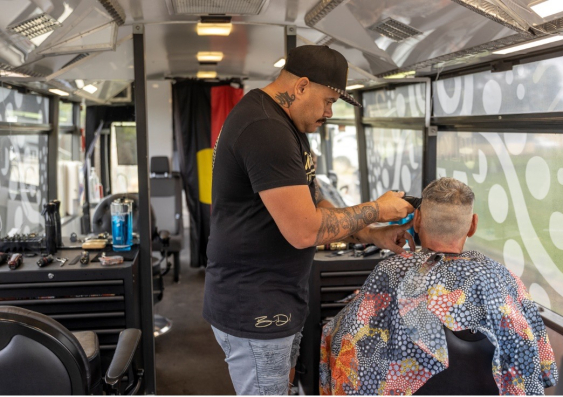Young Aboriginal and Torres Strait Islander people in rural and remote regions are significantly more likely to be diagnosed with chlamydia, gonorrhoea and infectious syphilis than their non-Indigenous peers – but an innovative health information project is looking to change these statistics.
The Walkabout Barber Bus is a built for purpose barber shop on wheels. Recently, it travelled to Kempsey, a regional town on the traditional lands of the Dunghutti people, 423km north of Sydney, to provide free haircuts to young Aboriginal men in the area, and to open a judgement-free space for them to talk and learn about mental and sexual health.
Robert Monaghan, Manager of Aboriginal and Torres Strait Islander Health Research at the Kirby Institute, says awareness and engagement, particularly among young men, are crucial to drive down sexually transmissible infections (STIs).
“We need to find new ways to engage young men, because what’s been done isn’t working,” says Mr Monaghan. “That’s where the Walkabout Barber comes in. We wanted to pilot an integration of sexual health information into the Walkabout Barber services. In this way, we can normalise conversations about sexual health.”
Brian Dowd, the Gamilaraay man who founded Walkabout Barber, first conceptualised his shop as a place that combines haircuts with mental health first aid, offering suicide prevention and wellbeing training to young Aboriginal people across Australia, often in hard-to-reach locations.
“It’s all about helping people, people helping people. That’s the main thing,” says Mr Dowd.
“I think a lot of good men are no longer on this planet because they didn’t speak and they didn’t tell people how they feel. What we’re trying to do with the barber chair is open up a space where when they put that cape on, men feel invisible and they speak from a different place, they speak from the spirit, they open up from the heart, and they open their mind up for information to come through. We call it the magical chair because you’ve got 30 minutes to have a talk about who you are, where you come from, what you do.”
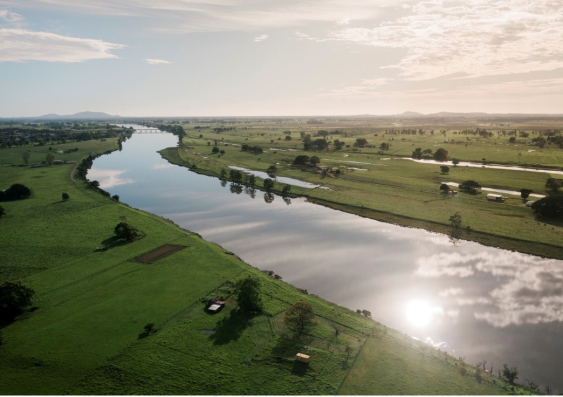
Kempsey is a regional town in Thunggutti/Dunghutti country, 423km north of Sydney. Photo: Thunderbox Films
Now, due to the innovative ‘Sexual Health Enhanced Walkabout’ pilot, Walkabout Barber has begun to incorporate information about sexual health services and, where appropriate, access to STI testing.
The pilot program was made possible thanks to an innovative partnership between the Kirby Institute, Durex, Durri Aboriginal Corporation Medical Service and Walkabout Barber.
Rory Duffy, CSR Lead for Durex ANZ, first recommended the partnership in 2019. “Durex is really looking at how we can close the healthcare gap between Aboriginal and non-Indigenous people in Australia. As a global sexual health brand, we feel it is our purpose to do something about it.”
The importance of Aboriginal-led initiatives
The Kirby Institute’s approach to Aboriginal and Torres Strait Islander research is driven by principles of Aboriginal leadership and self-determination for the development and delivery of health solutions for Aboriginal and Torres Strait Islander communities.
“These are complex problems, and the answers won’t be found in universities; they’re found out here, in communities,” says Mr Monaghan.
The aim of the pilot program was twofold. One goal was to improve access to STI testing in the community. But an equally important goal was to evaluate the novel, community-led approach to engaging communities in sexual health, to generate evidence for these unique models of health promotion.
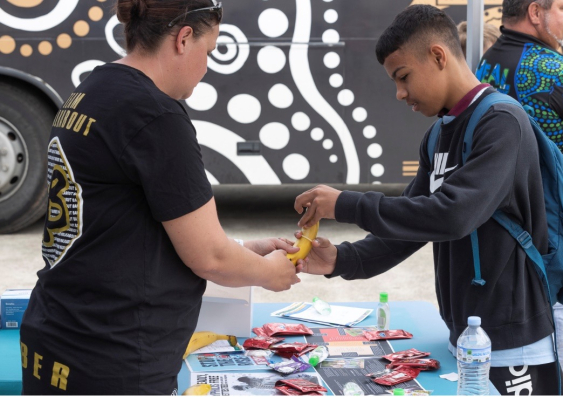
Jackie Thomas from the Kirby Institute giving a demonstration of how to use a condom. Photo: Thunderbox Films
“Sexual health, sexuality and STIs should never be a taboo thing; they should be accepted as just something that happens and that is part of people being themselves, without shame or stigma. The goal of our research is to encourage these types of conversations between communities and health services, and we've seen some excellent evidence of this as a result of this pilot,” says Jackie Thomas, a Kamilaroi woman and a researcher at the Kirby Institute.
Ms Thomas and Mr Monaghan, together with Kirby Institute researchers Lise Lafferty and Skye McGregor, conducted an evaluation of the initiative, through interviews and gathering information from Aboriginal health workers, Aboriginal stakeholders and participants to understand the project’s effectiveness and acceptability.
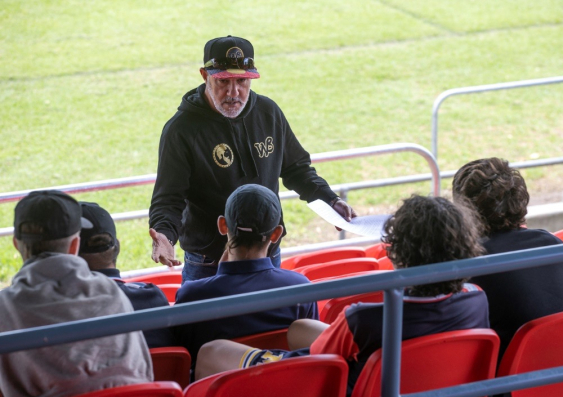
Robert Monaghan conducting a focus group discussion with young men in Kempsey. Photo: Thunderbox Films
Holistic approach to health crucial for Aboriginal communities
Mr Monaghan conducted interviews with some of the pilot participants. He says the interconnectedness of mental health, community health and other health issues was a clear theme for the young men in Kempsey.
“One of the questions I asked the kids when I was doing interviews with them was, ‘do you see yourself in this picture?’ [Brian’s experience of mental health challenges and his need for support] and they said ‘yes’. Programs like this have that ripple effect, not only in sexual health, but across the whole course of someone’s life.”
The researchers found that the project was able to engage the community, and they saw increases in STI testing, particularly for syphilis. Participants highlighted the importance of cultural connection when young people access sexual health information.
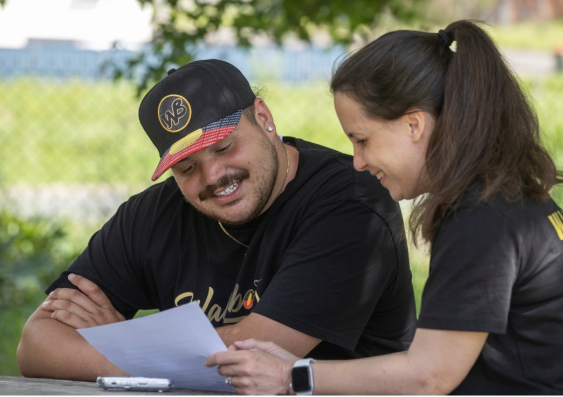
Lise Lafferty, a qualitative researcher from the Kirby Institute working on the Sexual Health Enhanced Walkabout project, is speaking to one of the barbers about the project. Photo: Thunderbox Films
Mr Dowd was pleased to see the sexual health component added to the service.
“It’s not just about the haircut, it’s about the conversation. Spirits connect with spirits, hearts connect with hearts, minds connect with minds, and we hope this is just the start of many of these visits. If we can get men talking, let’s keep them talking, and get men healthy, their families healthy and their communities healthy as well,” Mr Dowd said.
“We think this is a useful mechanism to engage young people in conversations about important health issues. We are looking at ways to expand the initiative to be able to help more communities,” says Mr Monaghan.
The pilot for the Sexual Health Enhanced Walkabout project was funded by Durex and undertaken in partnership with Durri Aboriginal Corporation Medical Service in Kempsey, NSW.
The Kirby Institute would like to thank Durex, Durri Aboriginal Corporation Medical Service, Walkabout Barber, Mid-North Coast Local Health District (Kempsey Hospital and Aboriginal staff), and all Kempsey local schools and services who participated in and supported this event.


